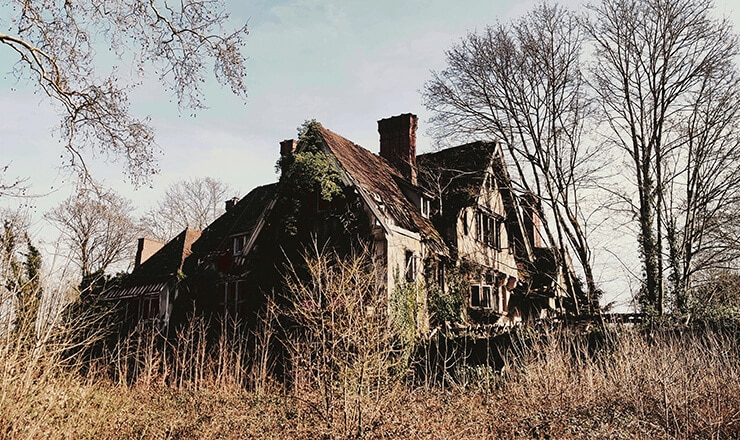A haunted house? Seriously? Yes. Selling a haunted house is not an unusual inquiry, especially during October, the spookiest time of the year.
64% of millennials and 55% of baby boomers say they’d be willing to purchase a haunted house.
There are four states that deal with paranormal activity or the supernatural in their real estate disclosure laws. We will go over these and answer two questions: (1) can you sell a haunted house, and (2) how?
States that Deal with the Paranormal in Housing
New York, New Jersey, Massachusetts, and Minnesota discuss the paranormal in real estate.
New York says that a court can overturn a house sale if the seller was not forthcoming about the property’s ghostly reputation, after spreading rumors that it’s haunted. An example: let’s say your New York condo features on a reality ghost hunters television show. If later, you sell the place without telling the buyer it’s haunted, the court can cancel the sale.
New Jersey insists that if a buyer asks about phantoms, the seller disclose the truth.
Massachusetts and Minnesota directly mention “paranormal or supernatural activity” as a “psychologically affected” attribute of a property that does NOT need to be disclosed.
States that Deal with Death in Housing
Other states, while not acknowledging hauntings, do insist that a death on the property be disclosed.
In California, a death on the property must be disclosed within three years. In Alaska, within one year.
Connecticut, Delaware, Georgia, New Hampshire, New Jersey, and South Carolina all state a death on the property should be disclosed only if the buyer asks.
South Dakota insists a homicide must be revealed to buyers.
Whether or not you believe a death on the property is followed by the spirit haunting the premises does not matter in these or other states not mentioned.
How Do You Sell a Haunted House?
Can you sell a haunted house? Yes. On a rare occasion, with the right audience, it can be a selling point. Most times, though, it discourages buyers who believe in the mysterious and unnatural. So what can you do?
1. First things first: confirm you live in a haunted house
Sometimes weird occurrences can be explained. Get the house inspected for maintenance issues and make repairs. If, after doing this, strange things keep happening, keep a log to establish a pattern that points to the paranormal.
2. Talk with a realtor
If your house is haunted or cursed, or where a homicide, suicide, or other criminal activity occurred, or as they call it in the real estate industry, is “psychologically impacted” or a “stigmatized property,” talk with your realtor about associated laws and selling options.
3. Unless Law Requires, Say Nothing
If you live in a state where real estate disclosure laws do not require revealing deaths and hauntings, why say anything? If after you sell, the buyer claims the house is haunted, they have to prove to a court first that the house is in fact haunted, and then that you knew about it. Impossible, right?
Sell the Property and Its Ghosts to an Investor
Real estate investors are not afraid of no ghosts. They will pay cash for a property “as-is,” be it damaged, neglected, or inhabited by spirits. The investor buys without traditional sale warranties or inspections, and covers the closing costs and additional sale fees. You can offload your haunted property in less than 30 days and use the cash proceeds for a down payment on a new house with no specters.






